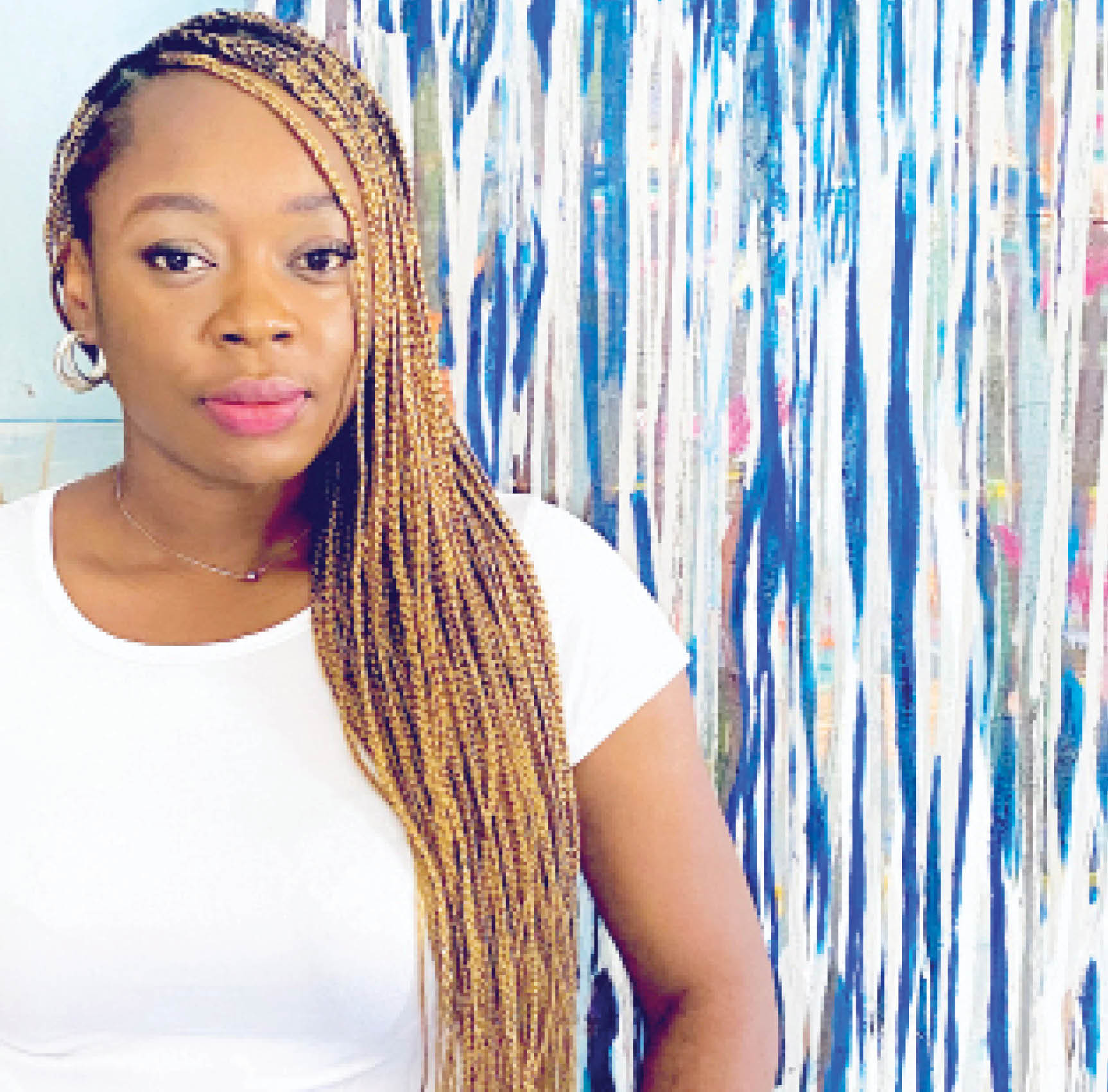Amarachi Odimba is a graduate of Geology and Mining from the Enugu State University of Science and Technology. Since the self-taught artist relocated to Abuja in 2012 to fully commence her studio practice, she has been exploring her love for art which started by drawing around her house as a child. The Abia State-born award-winning artist has been in the spotlight having benefitted from a residency programme. With her first solo exhibition in South Africa, she has not stopped shining with her works. She speaks on her love for human figures and her recent joint exhibition with Sor Sen themed ‘Shared Encounter’ in Abuja.
You’ve been in art for some years, how do you think your works have evolved?
Over the years, my work has evolved aesthetically and narratively, working across artistic media like installation, mixed media, public participatory art and mostly painting to underscore societal themes on education, human social relationships and migration.
‘Why authors should write in native languages’
I have always been fascinated with the human figure, which I started out with as realistic drawings in my early years. I guess, my art classes on Art movement-renaissance also grew this interest in my secondary school days at Federal Government College, Ikot Ekpene. My recent paintings are done in acrylic and oil, using gestural brush strokes to create abstract figures which are further obliterated with drips of paint. As a creative, I work intuitively and I am used to continuum shifts in my technique and narrative.

Technological innovation is another factor when it comes to art, has this affected your works in any way?
It is clear that technology rules the world and the good news is that art would always find a way to integrate its surroundings to its trends. The rapid and constant innovations in technology have benefited the art, for instance in the stream of various software and gadgets which help artists work efficiently. Also, the good sides of social media cannot be overemphasized, artists have the opportunity of exposing their works to a larger and more diverse audience almost at no cost. This yields a more engaging and participatory experience for both the artists and the audience.
How would you describe your partnership with Sor Sen considering the success of your joint exhibition in Abuja?
I love collaborations—sharing space and ideas with a fellow artist fosters friendship and mutual benefits. I find Sor Sen’s work really striking and we both play with the threshold between abstraction and figuration but in different ways. Our duo exhibition, ‘Shared Encounters,’ set up the chance to collaborate with him and garner the attention of the public and press to view our work in a different setting.
There is something striking about your works and that of Sor Sen, are you willing to explore this further?
With the success of ‘Shared Encounters,’ I have gained more insight into creative collaboration and would like to work with Sor Sen again in the future.
Your success in the industry, knowing you are a self-taught artist, is an added advantage. What are your plans for elevating what you do?
Just doing the work. I focus more on grit, consistency and hard work rather than talent. This means challenging myself every day, developing my artistic skills in the best ways, and also building my network and audience.

Your successes must have ‘dwarfed’ the challenges you face in the industry, how is life as a female self-taught artist in Nigeria?
Without undermining the struggles of my male counterparts, there is still much under-representation of female artists, and this calls for more action in achieving a balance. Being a self-taught female artist initially felt like I was on the margins, pushing hard to gain visibility.
But, the good part is that I reckon the freedom of expression that art offers me. Focusing on the positives and putting in work douses the challenges that I face.
As a grantee for an art residency, what can you say about the availability of career-developing opportunities for artists in Nigeria?
Art residencies have greatly honed my art by providing me with an alternative platform for education and exchange. Sadly, these opportunities, both locally and internationally are often far-fetched and mostly require good funding.
I have personally benefitted from such career opportunities, including the Bruce Onobrakpeya Harmattan Workshop, Agbarha-Otor, sponsored by Institut Français du Nigeria and the Female Artists Association of Nigeria (FEAAN) in 2018.
The benefits of these opportunities to the artists cannot be overstated, hence the need for both the support of private and governmental entities.
What makes your works unique?
My work is unique because it is an embodiment of my thoughts and my most effective mode of communication. Despite the similarities I share with other individuals in society, my uniqueness still shows through my actions, behaviour and physical attributes. This is the same for my art, the fact that my style is recognisable and distinguishable buttresses this point.
What inspires you?
I am mostly inspired by the human condition and my response to prevailing issues around me. Most of my paintings are informed by my personal analysis of human behaviour on how we relate to one another.
Do you think Nigerian visual artists are doing enough in using art to address social and political issues?
Historically speaking, Nigerian artists have played a huge role in addressing prevailing issues in society. In various capacities, creating art as conduits for social and political change. I am particularly inspired by the nuanced approaches of Victor Ehikamenor, Peju Alatise, Mike Asuquo to mention a few. Also, a number of my art projects examine such themes: for instance – my first solo exhibition, which is centred on migration, themed, Broad Borders, at Greatmore Studios, Cape Town, South Africa, 2018.

 Join Daily Trust WhatsApp Community For Quick Access To News and Happenings Around You.
Join Daily Trust WhatsApp Community For Quick Access To News and Happenings Around You.


